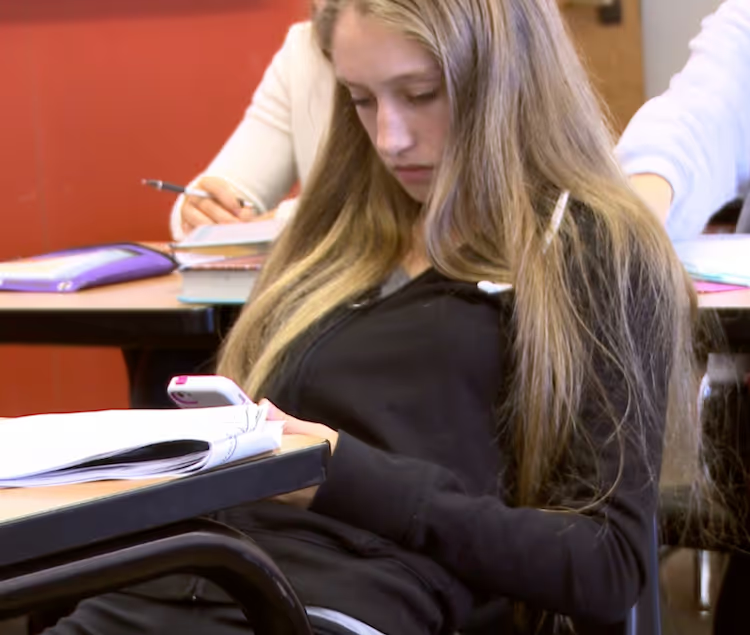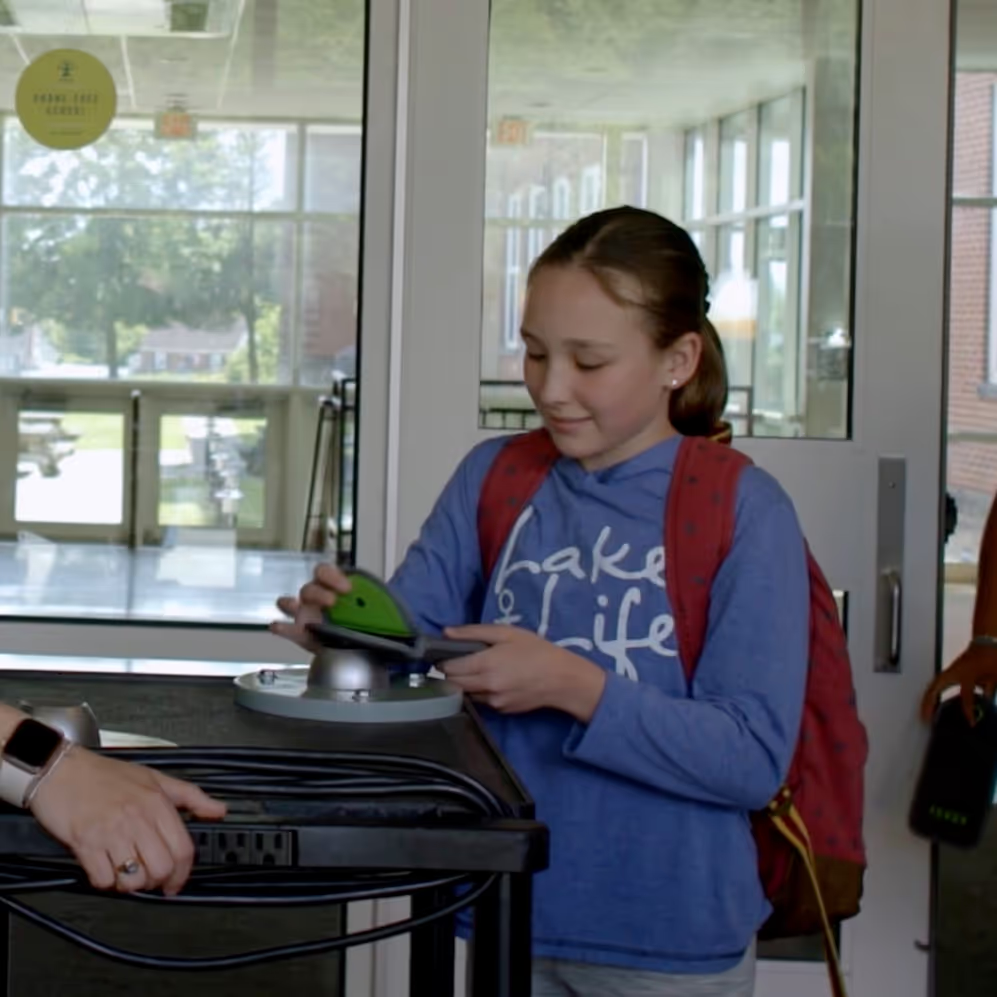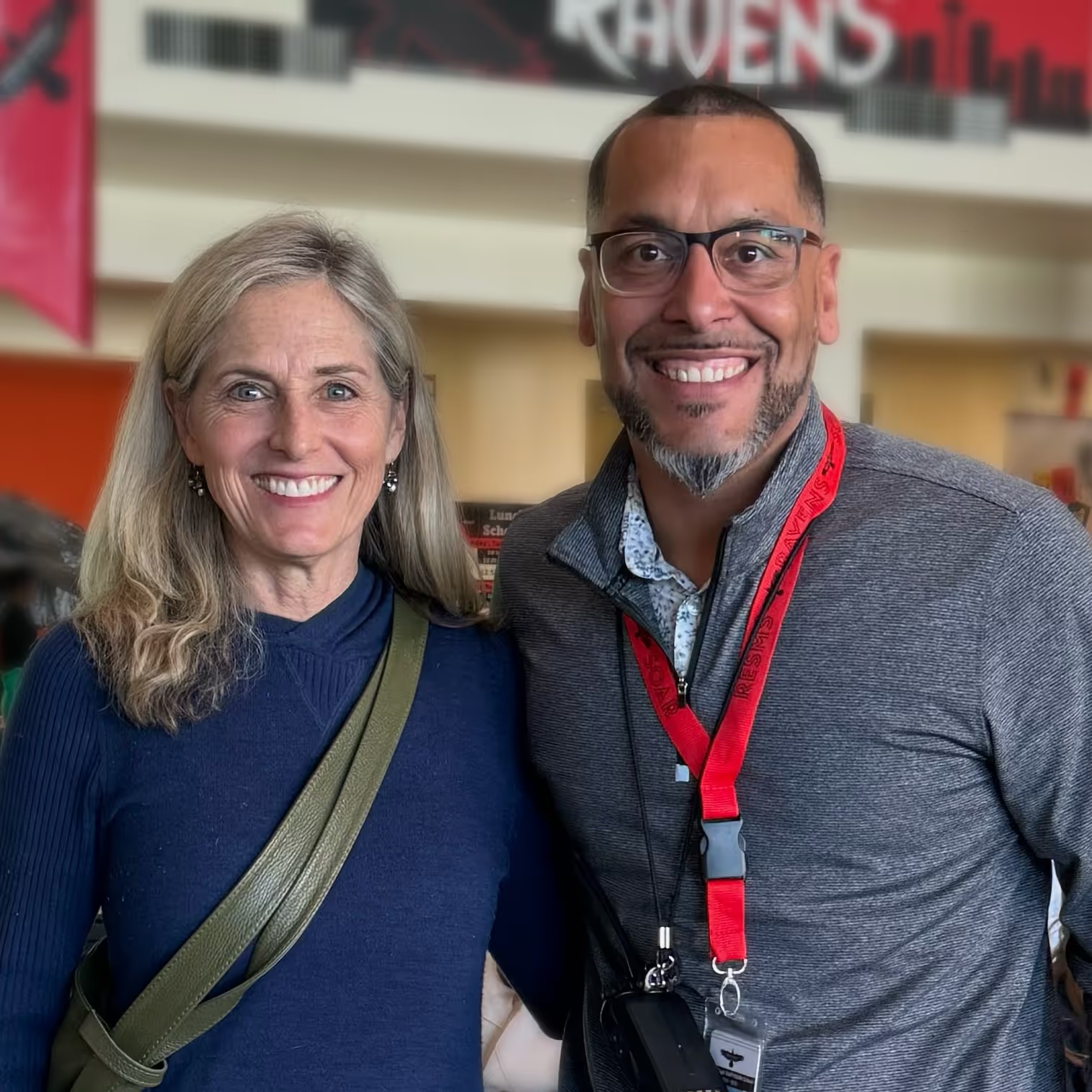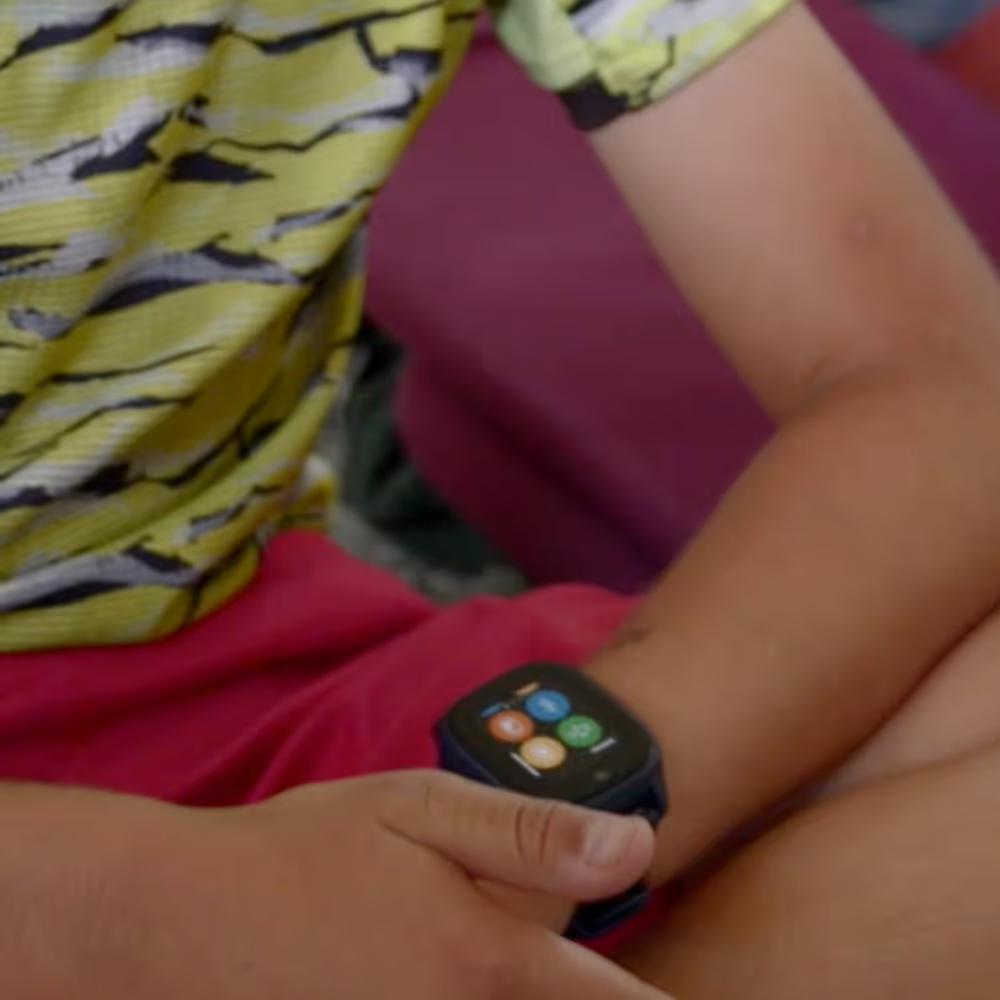


I feel blessed to have you, this Screenagers community, to learn together how best to help our kids thrive in our complicated tech world.
One thing that is key in our work together is ensuring we include the voices of young people — something that, of course, is present in the Screenagers film series.
Their input is crucial, and that is why I have 2 important questions for us to ask them as they transition back to school.
As you know, I am particularly focused on improving our kids' mental health. One major lever is decreasing personal devices in schools.
Learn more about showing our movies in your school or community!
Join Screenagers filmmaker Delaney Ruston MD for our latest Podcast

Learn more about our Screen-Free Sleep campaign at the website!
Our movie made for parents and educators of younger kids
Learn more about showing our movies in your school or community!
“If you were the chief decision maker of the school you will be at this year, what cellphone policy would you put in place for classroom time?”
“If you were the chief decision maker of the school you will be at this year, what cellphone policy would you put in place for break and lunchtime?”
Learn more about showing our movies in your school or community!
Join Screenagers filmmaker Delaney Ruston MD for our latest Podcast

Learn more about our Screen-Free Sleep campaign at the website!
Our movie made for parents and educators of younger kids
Join Screenagers filmmaker Delaney Ruston MD for our latest Podcast
Having your child explain their views will focus their attention on the topics as they begin their school journey.
It is wonderful that science shows us that these policies are an effective lever for improving the mental health of our children.
I spoke in the news this week about a school district in Arizona making great changes.
Meanwhile, UNESCO is talking about its concerns about phones.
This is such an important area for discussion. In 2017, our Screenagers team launched the Away For The Day campaign, and fortunately, there is a lot of movement happening around the country regarding schools and their cellphone policies. For instance, some schools have policies that require phones to be put in shoe pockets during class time in high schools or away in lockers in middle schools.
As we’re about to celebrate 10 years of Screenagers, we want to hear what’s been most helpful and what you’d like to see next.
Please click here to share your thoughts with us in our community survey. It only takes 5–10 minutes, and everyone who completes it will be entered to win one of five $50 Amazon vouchers.
I feel blessed to have you, this Screenagers community, to learn together how best to help our kids thrive in our complicated tech world.
One thing that is key in our work together is ensuring we include the voices of young people — something that, of course, is present in the Screenagers film series.
Their input is crucial, and that is why I have 2 important questions for us to ask them as they transition back to school.
As you know, I am particularly focused on improving our kids' mental health. One major lever is decreasing personal devices in schools.
“If you were the chief decision maker of the school you will be at this year, what cellphone policy would you put in place for classroom time?”
“If you were the chief decision maker of the school you will be at this year, what cellphone policy would you put in place for break and lunchtime?”
Having your child explain their views will focus their attention on the topics as they begin their school journey.
It is wonderful that science shows us that these policies are an effective lever for improving the mental health of our children.
I spoke in the news this week about a school district in Arizona making great changes.
Meanwhile, UNESCO is talking about its concerns about phones.
This is such an important area for discussion. In 2017, our Screenagers team launched the Away For The Day campaign, and fortunately, there is a lot of movement happening around the country regarding schools and their cellphone policies. For instance, some schools have policies that require phones to be put in shoe pockets during class time in high schools or away in lockers in middle schools.
Sign up here to receive the weekly Tech Talk Tuesdays newsletter from Screenagers filmmaker Delaney Ruston MD.
We respect your privacy.
I feel blessed to have you, this Screenagers community, to learn together how best to help our kids thrive in our complicated tech world.
One thing that is key in our work together is ensuring we include the voices of young people — something that, of course, is present in the Screenagers film series.
Their input is crucial, and that is why I have 2 important questions for us to ask them as they transition back to school.
As you know, I am particularly focused on improving our kids' mental health. One major lever is decreasing personal devices in schools.

This year, millions of students are experiencing a major shift: school days without phones, smartwatches, or other personal devices. Today we explore the wins, hurdles, and solutions helping schools succeed. We also share our resources that you can use to support technology policy changes in your schools.
READ MORE >
I recently sat down with middle school principal Zach at his school in Washington State. We talked about the challenges Zach and his team faced in his early years as principal when students used phones during school, and how he brought about a powerful transformation by having phones and smartwatches put away in locked pouches for the whole school day. In today’s blog, to raise awareness of the challenges, I share five real examples from Zach of the troubling ways students use phones at school to be unkind.
READ MORE >
It is with great pleasure that I share with you today a piece that Lisa Tabb and I did for Jonathan Haidt's (Author of The Anxious Generation) and researcher Zack Rausch's Substack blog — After Babel. In it, we discuss the rise in use of smartwatches in elementary schools and the problems they pose. There is a real cost to arming (pun intended) our kids with these devices and sending them to school. Now is the time to stop and fully address this topic and ensure that schools become smartwatch and phone-free.
READ MORE >for more like this, DR. DELANEY RUSTON'S NEW BOOK, PARENTING IN THE SCREEN AGE, IS THE DEFINITIVE GUIDE FOR TODAY’S PARENTS. WITH INSIGHTS ON SCREEN TIME FROM RESEARCHERS, INPUT FROM KIDS & TEENS, THIS BOOK IS PACKED WITH SOLUTIONS FOR HOW TO START AND SUSTAIN PRODUCTIVE FAMILY TALKS ABOUT TECHNOLOGY AND IT’S IMPACT ON OUR MENTAL WELLBEING.
